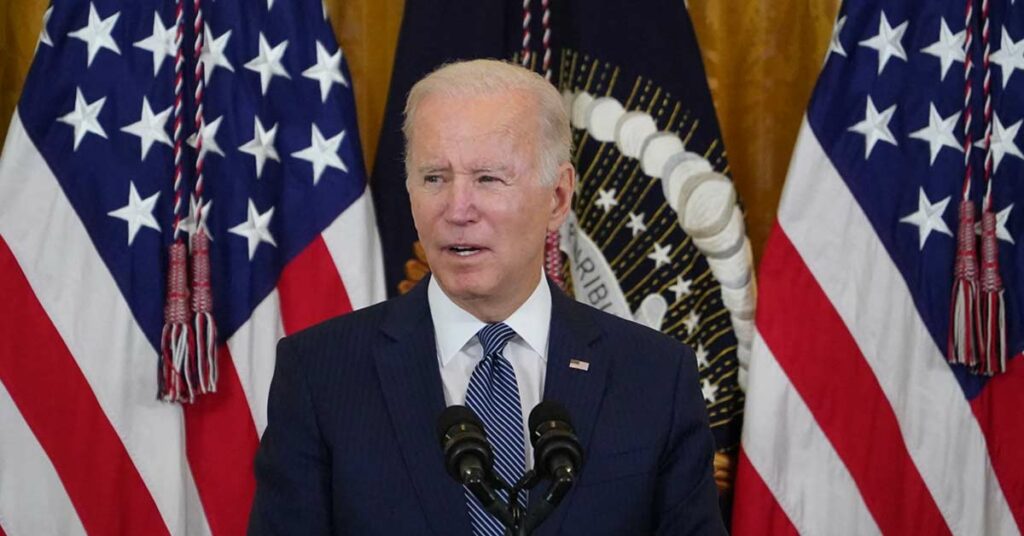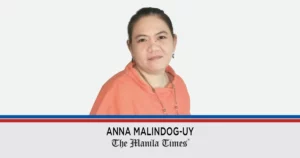
United States (US) President Joe Biden will host a virtual democracy summit for leaders from government, civil society, and the private sector on 9-10 December 2021 with the themes defending against authoritarianism; addressing and fighting corruption, and promoting respect for human rights as per the statement released on the website of the US State Department.
The invitations for the US Democracy Summit are out and more than half of the world was invited while the rest were left out. Some of the countries that were left out include China, Russia, Hungary, Egypt, and Turkey.
In Southeast Asia, just four out of the 11 Southeast Asian states were invited namely Indonesia, Malaysia, the Philippines, and Timor-Leste, while the rest were excluded including Singapore, which was a shocker since it is a long-standing strategic security partner and interlocutor of the US in the region.
But the most interesting of all and at the same time controversial is the inclusion of the island of Taiwan among the list of invited states even though the US does not officially recognise Taiwan as a sovereign state.
Democratic Criteria
So, what were the benchmarks used by the Biden administration in tagging those invited as democracies and those that were left out as non-democracies?
The Cato Institute in Washington DC and the Fraser Institute in Vancouver, Canada co-published the annual Human Freedom Index Report for 2020, which helps observe relationships between freedom and other social and economic phenomena. The report ranked 162 countries in two distinct categories: Personal Freedom and Economic Freedom, which are then combined to form the final Human Freedom score. This score is then compared to that of other nations to determine which countries are the freest in the world.
The top 10 Freest Countries in the World for 2021 Human Freedom Index include Hong Kong (HK-China) in third spot, while Singapore ranked 28 and Hungary ranked 49, yet these countries were not invited to the Democracy Summit of the Biden administration. However, countries like Pakistan ranked 140 and Ukraine ranked 110 were invited.
In the report, “Personal Freedom” is defined as an individual’s freedom of opinion and expression, equality before the courts, security of private property, and freedom to come and go. Whereas, Economic Freedom, also known as economic liberty, consists of personal choice, voluntary exchange, freedom to compete in markets, and protection of person and property.
Freedom is one of the building blocks of democracy and one of the most important factors influencing a person’s everyday quality of life. Human freedom recognises individuals’ dignity and is inherently valuable, playing a vital role in human progress.
Moral Ascendancy
It is of the essence to inquire if indeed the US has the moral ascendancy to classify and catalogue which countries are democratic – thus invited to the summit – and which are not, hence not invited.
The US is not only a declining power but a backsliding democracy. It was recently listed among “backsliding democracies” in a report released by the Stockholm-based International Institute for Democracy and Electoral Assistance (IDEA), a think-tank that observes, and ranks governments around the world.
According to IDEA, there’s a decline in effective parliament and a decline in freedom of expression and freedom of association and assembly in the US. The declines in civil liberties and checks on government indicate that there are serious problems with the fundamentals of US democracy.
IDEA bases its assessments on 50 years of democratic indicators in about 160 countries, assigning them to three categories: democracies (including those that are “backsliding”), “hybrid” governments, and authoritarian regimes.
Likewise, the latest United Nations (UN) human rights report on the US reflects the general concern of the international community over the continuing deterioration of human rights of minority groups in the country.
The report was delivered by Fernand de Varennes, the UN special rapporteur on minority issues, as he was concluding his two-week visit to the US. “It is becoming unfortunately apparent that it is almost a tyranny of the majority where the minority right to vote is being denied in many areas,” Varennes expressed in a media briefing.
Varennes briefed on the systemic discrimination against minority groups in many areas including electoral rights, education, religion, criminal justice, and hate crimes. It noted that antisemitism, anti-Asian speech, Islamophobia, derogatory slurs against the Latinx community, and anti-immigration xenophobia are on the upswing, sometimes at record levels, in the country.
Moreover, even in terms of perception index, the US has been perceived to be a threat to democracy by its citizens and other nationalities instead of being the flag bearer of democracy. In the 2021 Democracy Perception Index (DPI) survey, which was commissioned by the EU-based Alliance of Democracies Foundation which was established in 2017 by former NATO Secretary-General and former Denmark PM Anders Fogh Rasmussen, among the staunchest allies of the US, on the key question of which country is a “perceived threat to democracy,” 44 percent answered that “US influence” was the “biggest perceived threat to democracy” while only 38 percent said it was China.
In the 2020 DPI survey, 36 percent of Americans believed “there is not enough democracy in their country” compared to 11 percent in China who said the same about democracy in their country.
On the other hand, for three consecutive years, the DPI survey has found that Chinese and Asian perception of democracy in their respective countries is better than Americans in terms of their governments and their responses to the COVID-19 crisis. In the 2021 DPI survey, 75 percent of Asians were satisfied with their country’s response while in Europe only 45 percent were satisfied.
To note, this year’s DPI survey was conducted by Latana, a market research group. The DPI is conducted with 50,000 respondents in 53 countries, representative of over 75 percent of the world.
No doubt, the challenges that US democracy faces run deeper. Its democratic norms are continuously weakened and extremely rooted in extreme partisan polarisation which is beyond policy differences but an existential conflict over race and culture.
Geopolitical Underpinnings
Like the Quadrilateral Security Dialogue or QUAD which is an informal strategic dialogue between member countries the US, Japan, Australia, and India, and AUKUS, the new security pact between Australia, the US, and the United Kingdom (UK), the US Democracy Summit is more a compulsion of realpolitik in contemporary times with China being identified as the number one threat to the US’ hegemonic standing in Asia and the world in general than about democracy.
This US ‘Summit for Democracy’ with a bizarre list of invited countries appears to be based on geopolitical considerations more than anything. For example, despite the many instances that President Rodrigo Duterte has been criticised by many in the US and the West in general as a dictator, and human rights violator, the Biden administration has listed the Philippines in the roll of invited countries. Why is that?
The obvious answer is because the US sees the Philippines as a crucial outpost in its security projections in the Indo-Pacific region given its strategic location geopolitically speaking and not necessarily because the US genuinely appreciates the country as being truly democratic under the Duterte administration.
The invitation is a way of trying to ensnare the Philippines within the ambit of US influence away from its close relationship with China while the US negotiates to add, establish, and resume the construction of more US military facilities and the prepositioning of more US military and defense assets inside Philippine military bases.
Just recently, Philippine diplomatic and defense officials met in Washington DC for two days (15 and 16 November) and outlined a joint vision statement to reinvigorate bilateral relations between the two countries.
The US is also trying to boost the presence of American boots on Philippine soil through the Visiting Forces Agreement (VFA).
The VFA is not only the operational framework of the Philippines-US security alliance but also is part of the wide-ranging and extensive network of US-led systems of security alliances and partnerships in the Asia-Pacific region.
Likewise, this so-called summit for democracy is a tactic that has been played by the US since the Cold War era, attempting to isolate and counter China, Russia, and other countries which are not subservient to the US along ideological lines. This is a “salami-slicing tactic” of the divide and conquer process of threats and alliances used to overcome opposition. With it, an aggressor can influence and eventually dominate a landscape, typically political, piece by piece.
Like the QUAD and AUKUS, the summit for democracy is nothing more than a larger, geopolitically-centric effort of the US to counter China and Russia. This is precisely the reason why China and Russia were not invited to this summit. This move on the part of the US risks fomenting divisions based on ideological leanings rather than the paramount need for cooperation among countries across the globe.
Conclusion
Indeed, the US Democracy Summit is designed to advance US geopolitical objectives using the democracy card to serve its strategic interests. The summit will only give rise to new divisions and fuel ideological confrontations and will bring commotion, and instability to the world.
With the prevalent threats of the COVID-19 pandemic and the dangers posed by Omicron across the globe, the world does not need divisions or the creation of groupings along ideological lines that will only further accelerate growing rivalries and competition between China and the US in the Indo-Pacific region; creating a Cold War-like atmosphere.
Rather, countries across the globe need more cooperation and the establishment of common and middle ground regardless of differences in ideologies and political systems amid conflicting interests, while seeking greater value in win-win cooperation in pandemic response, climate change, economic cooperation, and non-traditional security issues.
Source: The ASEAN Post
https://theaseanpost.com/article/will-us-democracy-summit-divide-world

